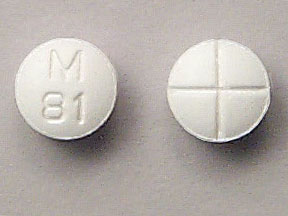
Captopril-hydrochlorothiazide Coupons & Savings Card – Discount Prices from $58.15
This medication is prescribed for managing high blood pressure, or hypertension. By lowering high blood pressure, it helps reduce the risk of strokes, heart attacks, and kidney issues. The product is a combination of two drugs: captopril and hydrochlorothiazide. Captopril is an ACE inhibitor that helps relax blood vessels, allowing blood to flow more smoothly. Hydrochlorothiazide is a diuretic, or "water pill," which aids in eliminating excess salt and water from the body by increasing urine production.
Our coupons are free to use. Before paying, show the pharmacist your Captopril-hydrochlorothiazide savings card to get your free discount. Use our filters below to edit the prescription box to match your needs. The Captopril-hydrochlorothiazide prices will update based on your prescription needs. Above our Captopril-hydrochlorothiazide coupons, you can change your location to see pharmacy prices and costs in other areas. We're here to help you buy Captopril-hydrochlorothiazide at the lowest price with our prescription discount card.
My prescription
Edit
25-15MG, Captopril-hydrochlorothiazide (90 Tablets)
Select pharmacy

CVS
$58.15
COUPON PRICE
Walmart
$203.09
COUPON PRICE
Walgreens
$214.08
COUPON PRICE
Albertsons
$223.36
COUPON PRICECaptopril-hydrochlorothiazide savings card
Show this card to your pharmacist
CVS
$58.15
BIN
ID
PCN
GRP
019876
LH23E05DED
CHIPPO
LHX
Powered by
This medication is prescribed for managing high blood pressure, or hypertension. By lowering high blood pressure, it helps reduce the risk of strokes, heart attacks, and kidney issues. The product is a combination of two drugs: captopril and hydrochlorothiazide. Captopril is an ACE inhibitor that helps relax blood vessels, allowing blood to flow more smoothly. Hydrochlorothiazide is a diuretic, or "water pill," which aids in eliminating excess salt and water from the body by increasing urine production.
Our coupons are free to use. Before paying, show the pharmacist your Captopril-hydrochlorothiazide savings card to get your free discount. Use our filters below to edit the prescription box to match your needs. The Captopril-hydrochlorothiazide prices will update based on your prescription needs. Above our Captopril-hydrochlorothiazide coupons, you can change your location to see pharmacy prices and costs in other areas. We're here to help you buy Captopril-hydrochlorothiazide at the lowest price with our prescription discount card.
More prescriptions for hypertension
coupons from$39.26Save 91%
coupons from$17.71Save 92%
coupons from$7.02Save 91%
coupons from$18.60Save 74%
coupons from$66.15Save 38%
coupons from$15.56Save 75%
coupons from$22.48Save 75%
coupons from$54.77Save 48%
More prescriptions for hypertension
Corgard Save 91%coupons from $39.26
Nifedipine ER Save 92%coupons from $17.71
Quinapril Save 91%coupons from $7.02
Spironolactone Save 74%coupons from $18.60
Acebutolol Save 38%coupons from $66.15
Benazepril Save 75%coupons from $15.56
Enalapril-hydrochlorothiazide Save 75%coupons from $22.48
Amiloride-hydrochlorothiazide Save 48%coupons from $54.77
Captopril-hydrochlorothiazide dosage forms
Use our Captopril-hydrochlorothiazide 25-15MG coupon with prices from $58.15 for 90 Tablets. You can also use our Captopril-hydrochlorothiazide 25-25MG coupon with prices from $58.15 for 90 Tablets. We have a Captopril-hydrochlorothiazide 50-15MG coupon with prices from $73.34 for 90 Tablets. You can use our Captopril-hydrochlorothiazide 50-25MG coupon with prices from $73.34 for 90 Tablets.
Dosage Quantity Price from Per unit 25-15MG 90 Tablets $58.15 $0.65 25-25MG 90 Tablets $58.15 $0.65 50-15MG 90 Tablets $73.34 $0.81 50-25MG 90 Tablets $73.34 $0.81
| Dosage | Quantity | Price from | Per unit |
|---|---|---|---|
| 25-15MG | 90 Tablets | $58.15 | $0.65 |
| 25-25MG | 90 Tablets | $58.15 | $0.65 |
| 50-15MG | 90 Tablets | $73.34 | $0.81 |
| 50-25MG | 90 Tablets | $73.34 | $0.81 |
